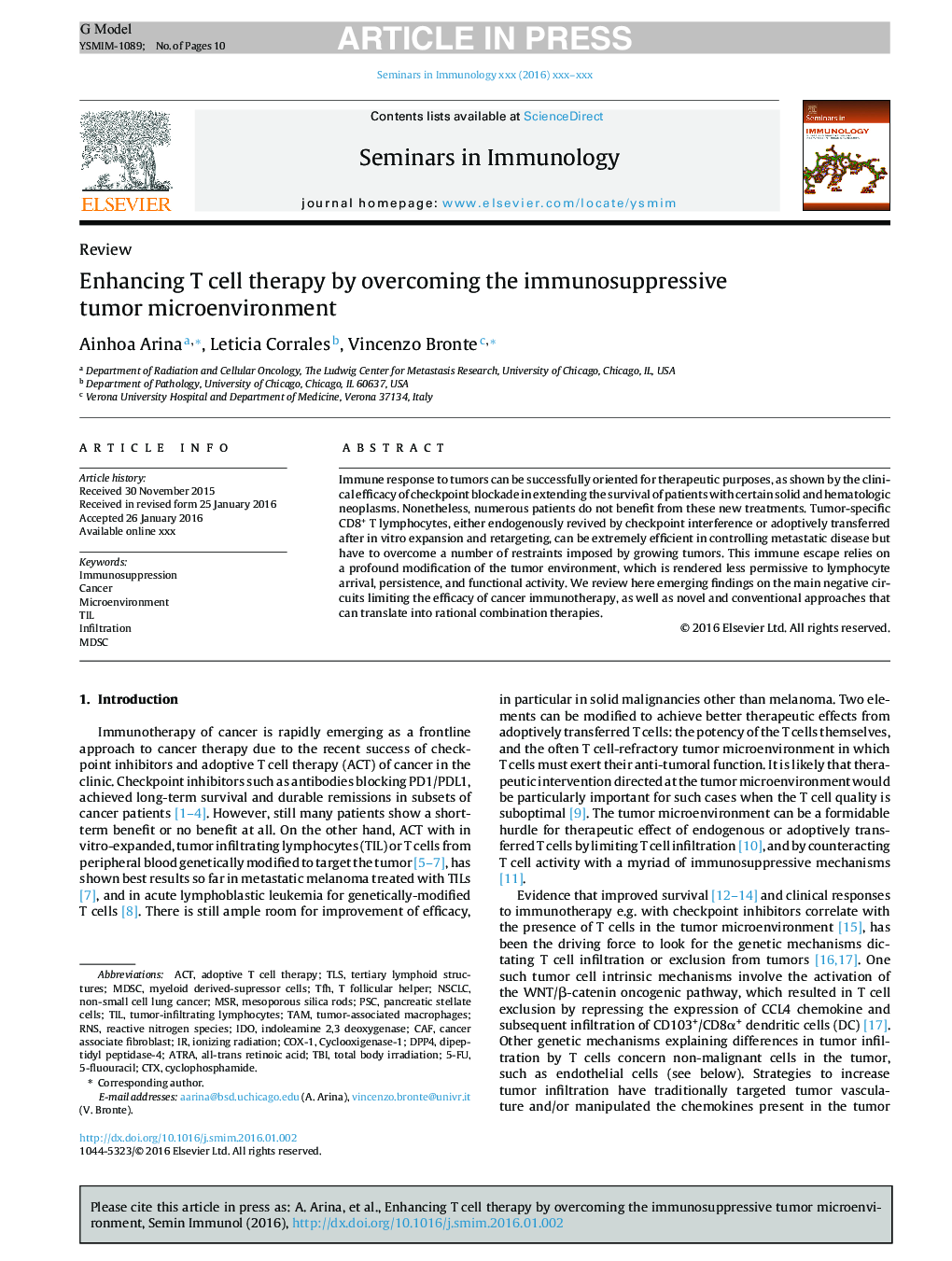| Article ID | Journal | Published Year | Pages | File Type |
|---|---|---|---|---|
| 6125819 | Seminars in Immunology | 2016 | 10 Pages |
Abstract
Immune response to tumors can be successfully oriented for therapeutic purposes, as shown by the clinical efficacy of checkpoint blockade in extending the survival of patients with certain solid and hematologic neoplasms. Nonetheless, numerous patients do not benefit from these new treatments. Tumor-specific CD8+ T lymphocytes, either endogenously revived by checkpoint interference or adoptively transferred after in vitro expansion and retargeting, can be extremely efficient in controlling metastatic disease but have to overcome a number of restraints imposed by growing tumors. This immune escape relies on a profound modification of the tumor environment, which is rendered less permissive to lymphocyte arrival, persistence, and functional activity. We review here emerging findings on the main negative circuits limiting the efficacy of cancer immunotherapy, as well as novel and conventional approaches that can translate into rational combination therapies.
Keywords
TLSCTXRNSCOX-1PSCACTIDODPP4MDSCTFHMSRTertiary lymphoid structuresTBI5-FUCAF5-FluouracilatRAall-trans retinoic acidTotal body irradiationTILionizing radiationTAMTumor-infiltrating lymphocytesAdoptive T cell therapyDipeptidyl peptidase-4CancerNSCLCNon-small cell lung cancerImmunosuppressionPancreatic Stellate CellsCyclophosphamideTumor-associated macrophagesMicroenvironmentInfiltrationT follicular helperreactive nitrogen species
Related Topics
Life Sciences
Immunology and Microbiology
Immunology
Authors
Ainhoa Arina, Leticia Corrales, Vincenzo Bronte,
